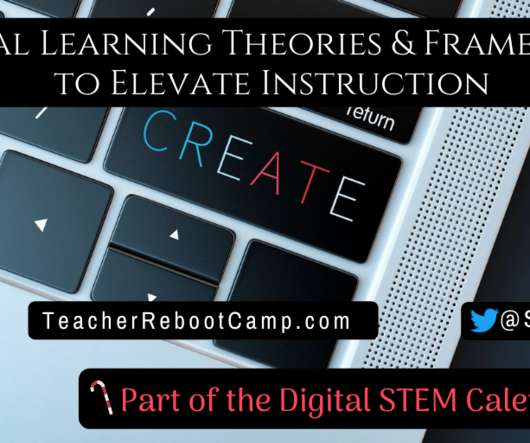Digital Learning Theories and Frameworks to Elevate Instruction
Teacher Reboot Camp
DECEMBER 5, 2020
Currently, I teach the online course, Online Learning: Best Practices to Leverage the Power of Distance Learning for graduate and continuing education credit. I often reference the ideas and research by McIsaac and Gunawardena in the Handbook of Research for Educational Communications and Technology. Jonassen (Ed.),
























Let's personalize your content